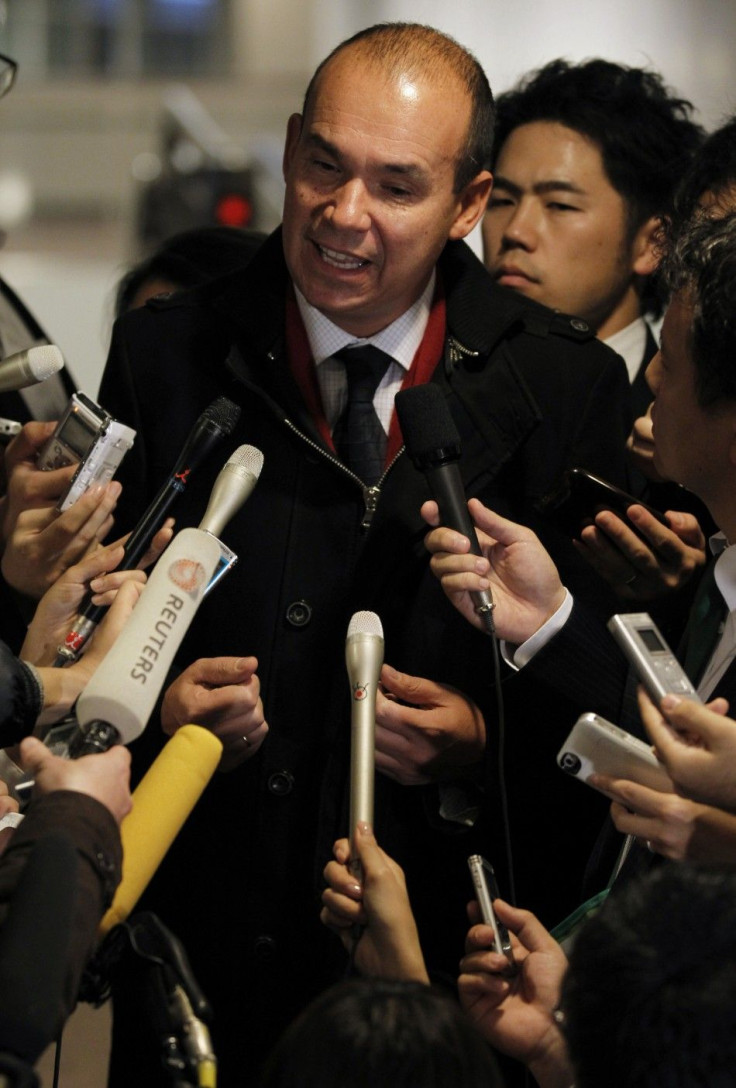Olympus Ex-CEO Attacks Japanese Shareholders

The whistleblower in Japan's Olympus Corp scandal, ex-CEO Michael Woodford, blasted Japanese shareholders Thursday for failing to stand up for him, amid signs that domestic and foreign investors are split over his campaign to be reinstated.
Woodford, an Englishman who was a rare foreign CEO in Japan, went public with his concerns over crooked accounting at Olympus after his sacking in October, leading to the uncovering of a $1.7 billion fraud that has left the company badly weakened.
He is now lobbying shareholders of the maker of cameras and medical equipment to support his reinstatement and replace the disgraced board with a new team that he is assembling.
We saw a shameful state of the company's finances yesterday, but not one Japanese shareholder stood up and said publicly 'Mr Woodford is right, thank you Mr Woodford', anything, a total, an utter silence, Woodford said, a day after Olympus released its restated accounts on Wednesday.
His comeback campaign has highlighted the contrasting opinions of foreign and Japanese shareholders to the future leadership of Olympus, which has been found to have carried on a $1.7 billion fraud to hide investment losses for 13 years.
At least three big foreign shareholders have backed Woodford's bid to return to the company where he had spent three decades working his way from salesman to CEO. But not one Japanese shareholder or lender has openly supported him since he blew the whistle, leaving him clearly frustrated.
Woodford also launched an emotional attack on the firm's current Japanese boss.
Should that man be the president and custodian of one of Japan's iconic companies? he said of Olympus President Shuichi Takayama, one of the directors who had voted unanimously to sack him after he had queried the firm's dubious book-keeping.
How dare he! Woodford added.
Woodford also said he had discussed refinancing options for Olympus with private equity firms and investment banks, and also voiced concerns that Takayama was planning to raise money by placing new shares with a third party.
This would dilute the stakes of existing owners and weaken the their hand in a proxy battle between Woodford and whomever the existing board chooses as its next CEO candidate.
It would dilute the existing shareholders so then I could not win a proxy fight, he said.
The existing board, led by Takayama, has said he and fellow directors will resign soon, to make way for a new board to be elected by shareholders at a meeting in March or April, and that the board wants to choose its successors before it quits.
It has set up an external panel to advise on board candidates and other management issues.
Takayama even suggested on Thursday the board would consider Woodford as a candidate for his old job, but few analysts gave the gesture any credence given the hostility between the pair.
Takayama, currently the most senior executive after several resignations since Woodford's departure, said he had no plans to meet Woodford, whom some major Japanese shareholders and lenders privately oppose, according to a banking source.
As of now, I have no plans to meet, he said.
Woodford says the board is discredited and has no right to choose its successors. He is assembling his own team of candidates for a new board with himself at the helm.
NEED FOR FRESH CAPITAL OR TIE-UPS
Woodford also went public with a plea to meet the head of Sumitomo Mitsui Banking Corp (SMBC), the main lender to Olympus, a possible sign that he was having trouble getting access.
My representatives have asked for a formal meeting with SMBC. I hope they at least give me the courtesy of listening to me, he said. The bank is the core banking unit of Sumitomo Mitsui Financial Group.
The next CEO and board of Olympus face major challenges, starting with a need to repair the once-proud firm's balance sheet, which was revealed on Wednesday to be $1.1 billion weaker than had been previously disclosed in its fraudulent accounts.
Olympus shares slumped 20 percent on Thursday, with investors now concerned it might need to merge, sell assets or raise fresh capital.
Takayama said on Thursday the company was considering capital and operational tie-ups, among other options, to relieve the pressure on its balance sheet, which was shown to have a very thin layer of equity remaining after the restatements.
Olympus forecast its troubled camera business to make a loss in the current financial years, but said unit sales had grown 15 percent in the six months to end-September, from a year earlier.
The firm, whose main income-earner is its very profitable endoscope business, avoided automatic delisting from the Tokyo Stock Exchange by meeting Wednesday's deadline for producing its overdue second-quarter accounts, giving some initial relief to investors who had feared it might miss the deadline.
However, the 92-year-old firm can still be delisted if the exchange believes the accounting deceit was grave enough.
Woodford said he favored private equity or a rights issue over a strategic alliance, which would rob Olympus of its independence. But rights issues, where existing shareholders can buy more shares on a pro-rata basis, are rare in Japan.
Olympus has lost more than half its market value since it sacked Woodford and the scandal erupted. Two top Olympus executives have been found to have masterminded the scheme to cook the books. These executives have since resigned.
Olympus has been dogged by rumors of bid interest from rivals, such as fellow endoscope makers Fujifilm and Hoya, or from private equity since the scandal broke.
The Tokyo exchange said after the announcements that it was keeping Olympus on its watchlist for possible delisting.
(Additional reporting by Linda Sieg, James Topham and Mari Saito; Editing by Mark Bendeich)
© Copyright Thomson Reuters 2024. All rights reserved.





















